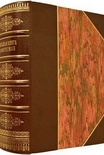Washington's Engineer by Norman Desmarais (best romantic novels in english TXT) 📗

- Author: Norman Desmarais
Book online «Washington's Engineer by Norman Desmarais (best romantic novels in english TXT) 📗». Author Norman Desmarais
Washington seemed not to have noticed the Comte de Grasse’s intention to immediately attack the British position. He replied to the Comte de Grasse’s letter,
I Will only inform you, that the van of the Two Armies . . . will fall Down the Chesapeake to form a junction with the Troops under the Com’d of the Ct. de St. Simon, & the Marquis Lafayette, & to Cooperate in Blockg. up Ld. Cornwallis in York River, and in preventg. him to make his Retreat by Land, or collecting any Supplies from the Country.
. . . In the Mean Time it will be of the greatest Importance to prevent the Escape of his Lordship from his present Position,—I am persuaded that every Measure which prudence can dictate, Will be improved for that Purpose untill the Arrival of our Compleat Force when I hope his Lordship will be compelled to yield his Ground to the superior Power of our Combined Forces.42
In a postscript to his letter to Lafayette of September 10, Washington said, “I hope you will keep Lord Cornwallis safe, without Provisions or Forage until we arrive. Adieu.”43
Lafayette wrote to General Washington on September 8,
Lord Cornwallis will in a little time Render himself very Respectable I ardently wish Your whole Army may soon be brought down to operate. We will make it our business to reconnoiter the Enemy’s Works and give you on your arrival the best description of it that is in our power—I expect the Governor this Evening and will again urge the necessity of providing what you have recommended.44
Before closing the letter, Lafayette made two requests: the first, that Washington, in answering Saint-Simon’s letter that Lafayette forwarded, should make special mention of “your Admiration of the Celerity of the landing and your sense of their cheerfulness in submitting to the difficulties of the first Movement—indeed, I would be happy something might be said also to Congress on the Subject.”45 Lafayette concluded his letter with great modesty:
Your approbation of my Conduct Emboldens me to request that, as General Lincoln will of course take command of the American part of your Army, the division I will have under him may be composed of the troops which have gone through the fatigues and dangers of the Virginia Campaign—This will be the greatest reward of the Services I may have rendered, as I confess the strongest attachment to those troops.46
Lafayette’s letter to Washington of September 10 noted the arrival of Colonel Gouvion at Lafayette’s camp at Williamsburg. He did not mention the report that Gouvion must have made or of what he had been able to accomplish in improving the condition of the roads over which the heavy army wagons would be forced to proceed. He certainly did the best he could under the circumstances.
Duportail’s October 29 letter to the commander in chief informed him that Gouvion instantly threw himself, heart and soul, into all that now presented itself to be done in relation to providing defenses for the American part of the allied armies.47 Those defenses were carried on under Duportail’s direction.
WASHINGTON AND ROCHAMBEAU REST AT MOUNT VERNON
Washington and Rochambeau rested at Mount Vernon for two days, then hastened to join Lafayette at Williamsburg. They arrived on September 14 and informed the Comte de Grasse the following day of their arrival. They made arrangements for a conference onboard the Ville de Paris for the seventeenth. Washington recorded in his journal,
17th. In company with the Comte de Rochambeau, the Chev. Chastellux, Genls. Knox and Duportail I set out for the interview with the Admiral and arrived on board the Ville de Paris (off Cape Henry) the next day by noon and having settled most points with him to my satisfaction, not obtaining an assurance of sending ships above York and one that he could not continue his fleet on this Station than the first of November I embarked on board the Queen Charlotte (the vessel I went down in) but by hard blowing and by contrary Winds did not reach Williamsburg again till the 22nd.48
All the allied troops were assembled at a camp near Williamsburg by September 27. Washington’s orderly book for that day gave the “Order of Battle for the Army.” They were to march to Yorktown, the Americans to form the right wing, and the French, the left. The “Park of Artillery and the Corps of Sappers and Miners” were to be located between them. Immediately after arriving the morning of the twenty-ninth, Duportail took command of the defenses of the American army; “Trees were felled, flèches were thrown up, and batteries were constructed at the points deemed most vulnerable.”49
Artillery at the second parallel. Photo courtesy of the author.
Cornwallis had withdrawn his men from the outer defenses before daybreak of the thirtieth and retired to those immediately about Yorktown. As soon as the allies learned of this retreat, they advanced and took possession of the abandoned ground, strengthening the old defenses and building new ones. Reconnoitering parties kept the armies informed of the strength and position of the enemy.
Washington wrote to the president of Congress on October 6, “[B] oth the Allied armies are assiduously employed in making fascines and gabions, and in transporting our heavy cannon, mortars and stores. . . . It being the opinion of the engineers that we now have a sufficient stock to commence operations, we shall this night open trenches.”50 Washington’s diary for the seventh records, “The





Comments (0)